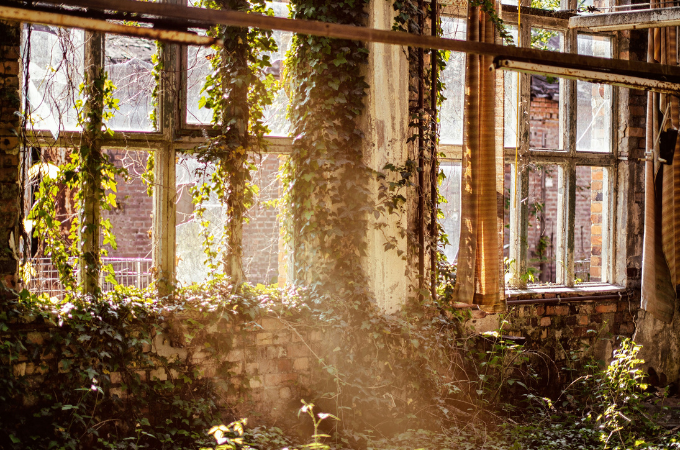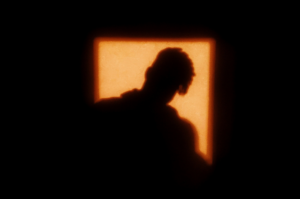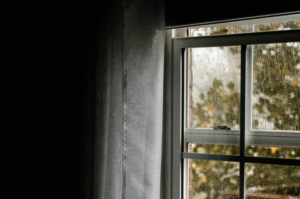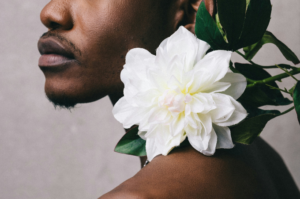
Memory taps a gun to your inner skull and demands you bring back the dead.
―Donte Collins, Autopsy.
We can begin with my mother coming back home, or else none of this matters.
I am in the kitchen making sandwiches for my little brothers while waiting for the water to boil when my mother enters with my grandmother. I am twelve years old. We do not have enough bread, but we know it is just enough that we do not go to school on an empty stomach, and they’ll be okay until break time when they can sprint right back home for lunch as their school is in walking distance from our house. It used to be my school, too, until two years ago when the education district removed the sixth grade from their curriculum. For lunch, I will have to rely on the feeding scheme. Wednesdays are my favourite days to brave the feeding scheme line because the ladies cook beans on Wednesdays. I hate beans, but my mother loves them and always asks that I bring her some. During breaks, I stand in line with my silver enamel plate on one side and my friend Sabelo’s lunchbox on the other and wait for them to dish up with her in mind.
The morning she returned from the hospital was a Friday. I remember this because we looked forward to Fridays—the Grade 7s at Kwazi Senior Primary School cleaned the classrooms on Thursdays, so it meant we had a half-day of lessons. We each took turns with the roster: some swept, some mopped and the rest polished the floor. At this point, the boys sat by watching from outside because their duties, which mostly consisted of moving the desks around and washing windows, were done. Like other boys, I got away with a lot where that is concerned, but I despised it because of the disconnect it created between me and my classmates.
I never moved the desks because I was quite underweight, and no one wanted to be on the other side of carrying most of the weight for me. Even if they wanted to, they wouldn’t have had me. Our form teacher, Mrs. Made, was overprotective of me then and always convinced the boys I should be excused from heavy-lifting. I did not mind doing it because I wanted to be a team player and doing this proved it. As a team player, we all got to reap the benefits of this clean-up the following day.
On Fridays, we spent break time removing the polish and shining the floor; and what better way to shine the floor than by sliding across the room repeatedly with our socks. I loved this part. Everyone did. We would place the desks around the classroom and pretended to be contestants on So You Think You Can Dance, a popular dance show on SABC 1 at the time. The outside world did not matter. We were cha-cha dancers, our hips moving in ways we never knew pre-teen bodies could move, and sensual tango dancers making up moves as we went along. We lost ourselves in the proximity of being held by a partner we chose simply because we saw on the show that this dance required a closeness that would be suspicious outside of dancing. Touch me here. Hold me this way and let us see where this takes us. Only the two of us exist right now, so let’s dance.
And my favourite: contemporary dance. I loved how it looked on So You Think You Can Dance—two bodies, sometimes even one, losing themselves to music and emotions, a dancing style I believed I could master simply because of how personal it looked. I could tap into the weightlessness that was required of this dance. Even though I didn’t know the moves or what I was doing or how best to articulate the emotions required of me, I could bullshit myself and my classmates into believing that I was doing something right. They always ate it up, clapping at the end and cheering on as my partner and I moved about the makeshift stage; enthralled by our interpretation of the dancers’ legwork, the well-timed sensuality of the arms swaying about and the ballet that we made of the silent classroom. We made stories of our bodies and watched as the classroom became a world watching, observing, and judging, egging us on.
When I was that age, being gay and being feminine were synonymous because we did not know any better. Contemporary dance and the emotional nature of using our bodies like that made us see each other and ourselves in a different light. It was almost like a gay awakening for most of us. Playing at contemporary dance and ballet allowed us to get in tune with our bodies and our minds in a way we did not quite understand, and we looked forward to it every time Mrs. Made informed us that we would be cleaning the classroom. I remember how my friend Bandile, who goes by Sabrina now, would always choose a Beyonce number because of how much she resonated with her and the moves she made in her music videos. So You Think You Can Dance was an experience for us, but when Bandile took the floor, we knew we were in for a performance.
I remember my time at Kwazi with a bitter-sweetness now. The memories live on, and so do the people with whom I made them. We meet every now and then when we remember to check in with each other and reminisce about how young we were, how beautiful we were and how sure we were that our life at the time was everything it could be. We’ve grown so much, we cannot believe how wrong we were.
We are the only part of Kwazi Senior Primary School that lives now. When I was in KwaMashu last time, I went past the school as I usually do when I’m there. It is along the way from my little brother’s school. Like it was the other times, what is left of my old school is a shame. A husk of the great thing it was when we were younger. The roofs that kept the rain from getting us are now all caved in, the walls still standing, but for no reason other than the strength of the workmanship that installed them. Kwazi Senior Primary School is now in ruins, overgrown with years of nature reclaiming itself. The first time I saw it my heart broke, and I don’t remember what Sabelo told me when I asked him what happened. That is how long it’s been. The place it was for us and the people we were when we called it our second home only exists in our memories, immortalised by the stories we never stop telling. Perhaps, in another reality Kwazi exists and still stands in all its beauty because we remember it so.
A month before my mother came home from the hospital, I asked if we would be going to the beach that festive season with our neighbours. Folks in KwaMashu made an event of going to the beach. Planning started months prior: taxis were hired, and someone and their sisters and their sister’s kids would pay a certain amount to secure their spot before anything was finalised. When just enough people have paid, the date would be set, and the real excitement would begin. You would know that it’s beach day by how early your friends arrived at your house to fetch you, the noise loud and riotous at the meeting spot, the neighbourhood more alive than it ever gets—kids in shorts and vests carrying school bags filled with the clothes they would change into after swimming, plastics packed with cooldrinks and water bottles and snacks, cooler-boxes we would be filling with ice later and huge bags with towels. What we did not have we would buy in town.
The noise from the excitement of the day was nothing compared to the sound of the music coming from the taxis as they drove in one after the other and blasted even louder as they waited for us to get in. Folks from KwaMashu know the spectacle of taxis, one after the other, passing by our hood with loud kids looking out from open windows, screaming along to empty kwaito music like a club in motion. It is a scream. There’s nothing as awful as missing out on this, because just as loud as the beach trip is when it leaves during the day, it is even louder when it returns in the evening.
I asked my mother earlier in her sickness if we would be going to the beach with everyone and she said, “Mina ukuba ngiwuwena ngabe ngithandazela ukuthi ngisinde kulokukugula.” I thought nothing of this because her well-being meant a lot to me. I may have not actually prayed for her to get better—like getting down on both knees and begging God—but I did want her to get better. I hoped she would. As sick as one gets, no child imagines their parent dying until death actually comes knocking. Perhaps, I should have prayed when she asked me to.
I begin with my mother coming back home from the hospital because the reality will not make sense until you imagine another version. These fragmented feelings and memories can only be understood with a tether in place.
I notice that she is still weak from whatever they did to her gave her at the hospital. My grandmother, MaHlatshwayo, carries the big blanket they left with some nights ago. Our neighbour, Uncle Philani, and my uncle Zakhele follow behind helping my mother up as she walks towards the bed. My little brother, Lwazi, is spread out on the floor, still sleeping despite how many times we have tried to wake him up to get ready for school. My other brother, Lindokuhle, needs no admonishing as he sprints from the couch where he’s putting on his pants to sit beside our mother on the bed attacking her with questions and complaints and gossip from the time she was away.
My family believes that I was our mother’s favourite because of how soft she was with me, but I think that it was always Lindokuhle. He always managed to loosen her up and make her feel like a child herself. It was a sight I enjoyed and appreciated from a woman who had had to grow up earlier than her peers. The pain she is in is quite evident, palpable. MaHlatshwayo tries to tell Lindokuhle to get away from her, but mom tells her it’s okay and kisses his forehead while he continues to fill her in. It really isn’t okay, and we know it. She should be resting. But a mother knows to put her children before herself; it is why grandmother doesn’t listen to her daughter’s wishes and continues to shoo my brother away. I have my own things I would like to share with my mother; school things, personal things, unimportant things, and I almost do when I catch her looking at me from the bed. I can almost see a tear balancing on her eyelids as she strains a smile.
I like to believe that she always knew. I see the way she would look at me in the many films I watch. There is a line in Love, Simon, where the mother played by Jennifer Garner says, “I knew you had secret,” when her gay son asks her if she had known about him. She tells him that when he was younger, he was always so carefree. It was when he got older that he seemed more closed off. In a voice that comes out as a whisper, “It almost like I can feel you holding your breath.” She tells him to exhale. The honesty in her words stayed with me, how a mother could stand by and helplessly watch as her son suffocated from societal pressures. I was in varsity when I watched the film for the first time, and I yearned for that moment. I recreated moments from my childhood using fragments of my memory and scenes from these films. In these mothers holding their gay children with love and kindness, with warmth, hugging them when they feel like coming out, will make the weight of carrying an open secret lighter. I yearned to see my own. These mothers smile, hug their kids, and say, “I love you as you are.” They give them that same look my mother would give me and continue, “I have always known. I have always known, and I love you.”
There is truth to my belief that my mother has always known. When I was younger, I had a friend named Aphiwe, this tomboy girl everyone in the neighbourhood believed to be my girlfriend. She was the closest thing I had to a best friend. I remember being clueless and curious. Our relationship made so much sense to me and I did not question how she could behave so much like a boy and I a girl. It felt like we could be anything with each other. We may not have had the words to describe what was happening in those formative years, but being friends with her was like having permission to discover things, question them, and discard them however we saw fit when they did not make sense or apply to us. Our friendship was the one place we could go to be ourselves. It was like a clubhouse where we did not have to worry about what grown-ups expected us to be. We could say and do what we wanted with each other because we created the rules, and no one could tell us that it was wrong. In this little clubhouse, Aphiwe and I could be as different as we wanted, and that was cool. We did care if one liked stuff that wasn’t supposed to be for girls or boys. We didn’t have to be like everyone else. We were Aphiwe and Sandile. It was like a bubble where the outside world, with its rules and ideas about how we should be, was really far away. It was like flying high in the sky, not knowing where we’d end up, but loving every minute of it.
We realised how this bubble of freedom we had created with Aphiwe was not fool proof the older we got. We were ten or eleven the first time I discovered that I liked boys. We were playing amatshe when, as if out of nowhere she and our other friend, Buyi, started talking about boys. About the new boy whose father was renting their backroom. In a story for another time, this new boy and I become best friends a couple of years later, watching comedy films on his father’s DVD player every time I visited KwaMashu for the school holidays. We became so close that the boys in the township gossiped that we’re secretly boyfriends. The friendship breakup that followed was so stupid, I have him blocked on all social media platforms.
“Did you see how cute he is?” Buyi said, dusting us in the game without even trying. She was the best player in the neighbourhood. She was always chosen first when we played amatshe in groups.
“Yeah, he’s cute,” Aphiwe rolled her eyes, “But he is nowhere close to Mbongeni.” My eye, which had been darting from one girl to another, suddenly stopped and rested irritably on Aphiwe, waiting for her to continue. “Yini Sandile?” she sneered, starting her turn of catching amatshe. Aphiwe and I had spoken about Mbongeni before, and in the many games we played when he was around, we tried to get him to come play with us, but the township kids said that boys did not play with girls. It was so ingrained in them that I remember when a gate was slammed in my face because of this. Aphiwe and I were the exception, to some extent, because we were already an anomaly. It did not help my worries about this weirdness, that was only getting more scrutiny the older we got, that this girl who acted like a boy did not like girls the way boys like girls, but instead seemed to like a boy that I happened to like.
I know that my mother has always known because it’s the truth. Another thing my friendship with Aphiwe did for me was open me up to the possibilities of being myself and hinting at the person I could be. We were even younger this time, probably six or seven, playing in my backyard when she suggested we exchange clothes to prank our friends who were on their way. Now, understand the excitement in this: the prospects of doing something I had always wanted to do but never quite got the opportunity to do. It is like having a switch pressed in your mind and a dormant memory unlocked. Getting out of our clothes and into what the other was wearing was an exciting feeling, but not as thrilling as it was when we were looking at each other: I was in her short floral dress with strings for straps and a white short-sleeved t-shirt, and she was in my golfer shirt and corduroy pants. Corduroys were in at the time, and I had five in different colours. I may not remember many things from my formative years, but I remember the corduroy craze. I remember the feelings of contentment, the thrill of taking on a skin different from your own and going against questions society could impose on bodies and our being. The curiosity and cluelessness were gradually making sense and it felt like I was at the precipice of getting some kind of answer to the questions I was yet to ask.
I remember my mother coming out of the house and noticing us, seeing me in that dress and how confounding it was to me that her face could wear so many expressions at once. I remember the swiftness with which her shoe moved from her foot to her hand. I remember being confused and suddenly scared that my mother could be both a person who loved me and a stranger who was capable of hurting me like that. It probably wasn’t the first time being hit as a child but something about that day remains vivid to me. The confusion that enveloped the experience of being found out by my mother and how I remember it would be unpacked in many failed talking stages and therapy sessions. I hated Aphiwe and for a while, I did not talk to her or play with her—being forbidden from doing so also helped. I did not understand why I was the one who got hurt when we were both caught doing the same thing, and for that time when I was grounded and forbidden from playing with her, I stewed in these questions, my mind replaying everything that happened.
Girls are given the space to explore because of this unspoken idea that they can grow out of the phase of being tomboy. In a toxic township environment, it was okay for Aphiwe to befriend a boy and assimilate to this persona because they knew that she would grow out of it—I saw it in how the boys behaved. Aphiwe was cool enough to be one of the boys and just beautiful enough that she could be someone’s girlfriend. It was the same thing with how my cousin had a lesbian friend and hung out with her every weekend, they were practically best friends, but he still loudly spoke out against gay people. This confused me because even this lesbian friend would echo his sentiments when they were talking like she was one of the boys.
It bothered me that I was on the receiving end of this ridiculous notion that femininity corrupted young boys, so much that my mother had to beat it out of me no matter how much she loved and cared for me. It is something I am still dealing with. I am seeing it in how I interact with my siblings’ children and how society is harder on boys to assimilate to what is deemed as the norm—I often find myself screaming things like, “But you’re a boy/girl and this and that.”
I have not cross-dressed since that day. Occasionally, my sisters put a wig on me whenever they are styling it and require a head, and for those couple of minutes, the questions of how being found out like that and being put back into shape to present the way the world wants boys to be, damaged my view of the world. It set me back emotionally, and I found that it was the source of why I navigated my femininity from a place of fear and viewed other men’s femininity with hatred and self-loathing. So maybe, mother has always known. The way she looked at me that morning told me that she had always known. There was a lot that was not said in our silent interaction that I now wish I could change. While we never got the chance to talk about it, I tell myself that it is okay. It is not perfect, but it is okay.
The morning she returned from the hospital, we were getting ready for school, eating our sandwiches with tea, breaking up fights when one brother accuses the other of stealing his socks. We are racing against the clock telling us we should have left the house a long while ago. All dressed and ready, I drag my feet to get my school bag from the wardrobe where it hangs on a coat hanger and hug my mother goodbye. This is the first time touching her since she came back. I kiss her and head out.
I remember my school life with a fondness. Primary school was the last time I remember being genuinely happy in an institution of learning, and it has nothing to do with being a child. It has everything to do with how people are cruel and capable of causing you pain when you’re different. I would always think back to those moments when I was having a bad day in high school, and when I started writing for real and for myself.
At school, most of the first half of that day will speed on without me. I will hang out with the gang during break playing superheroes and get lost in a heated debate on who is superior between Jean Grey and the Scarlet Witch for the better half of it. (The answer is the Scarlet Witch. It was correct then as it is now.) After break, our shoes will come off, the desks will be moved to the sides and Friday will officially begin. The classroom walls will fall away to unveil a dance studio and we will make stories of our bodies as we danced to our hearts’ contentment. This is the truth on most Fridays, but not this one. This is not even the most important part of this diversion, but it matters because in it I dance and dance and dance because my mother went to the hospital some days ago and came back that morning.
Which is to say, when I get back home that afternoon and receive the news that she has passed on, it hurts, but not so much because I kissed her goodbye. Because she looked at me while I was making sandwiches with that look that told me that my mother knew.
When I was reading up on memory regression, I found myself fascinated by Nicholas B. Diamond’s work and how he posited that our memories often feel like records of our past and are prone to errors. I was even more curious since I already knew that our memories are fragile and can be manipulated. The brain takes sensory fragments and tags them with specific associations. When we experience one memory cue, such as a smell or the sight of a familiar place, the brain reassembles other fragments with the same tags. The more often they’re assembled, the stronger the memories become. It is even more fascinating when this question is posed to a writer summoning a reality of the past and rewriting it to fit a narrative. That is how I wish things had happened. Memory is a choice, Ocean Vuong says. Perhaps it is the one thing I can control and manipulate in my quest to make myself feel better about a lot of the things that happened to me, the things that were done, and the decisions that were made.
My mother did not return from the hospital that morning. In fact, in this story it did not take her as many days as it did to not return. It all happens in one night. When my grandmother returned from the hospital the following day, she threw the blanket she had wrapped around my mother as they attempted to get her inside Uncle Philani’s microbus the previous night on the floor. She sat violently on the couch, and sighed heavily. She didn’t cry. I sometimes wish she had cried at least. As young as my brothers and I were, we were well acquainted with death and the way it comes unannounced and uninvited, so she did not have to tell us that our mother had died. To some extent, when a loved one gets so sick that they need to be rushed to the hospital in the middle of the night because of how serious the illness has become, it is normal to expect the worst. That they might not return. It is normal to expect this of a cousin or an uncle, but never a mother.
I remember thinking how I would not have to go to school for a week while the funeral preparations are underway—which meant I would not have to worry about exams for a bit, and how the kids at school would finally have to give me donations now. There is this thing our school does where they collect R2 and R5 from students when it is announced that a student has lost a family member. This had never happened to me because my family members always somehow died during the holidays—for the longest time there were whispers among the grownups about the weirdness of this, and the word “curse” flew around a lot.
We knew to hold our breath and anticipate the misfortune of loss from October every year because those were the months leading to the darkest time in our family history. My mother died sometime in November 2009. Some years before that, two of her siblings, my Uncle Sfiso and Aunt Zandile, died in November and December two years apart. My Uncle Zakhele died about three years after my mother, in October, if I’m not mistaken. My grandmother’s brother, Mkhulu Soso, also died in those months, some odd years in that mix. I remember all this because of exam season. It always coincided with these dates, and we would be made to stay home while everything was happening around us. I had just gotten back from school when Gogo told me Uncle Zakhele was involved in a car accident. I had been living in Newlands West at this time, so I was not close to my uncle or anyone in KwaMashu for that matter; but somehow, I locked myself in the bathroom and just sobbed. I stayed there for some time just crying. Then I washed my face with cold water and went back out like the world beckoned me to return to reality with a swiftness and started preparing dinner.
My grandmother has an intimate relationship with death and loss, and having to stay strong while all this is happening. Of having to carry the grief of everyone else, tucking it in around them so snuggly that they do not break into pieces around it. No one in my family has mastered the art of smiling while the world explodes around them like uMaHlatshwayo. Her husband and all her children have died, all around the same months—so you can imagine how for the longest time, the festive season was the grimmest for my family. I don’t remember when this sad occurrence stopped happening. I just know that it is a reality we would all rewrite if we had the ability to, since ignoring it is not an option.
When I wrote the original version of this essay for my Creative Writing class, my grandmother was still alive. In January 2024, MaHlatshwayo passed away. This exists now in her memory.
Lala salukazi, lala ntombazane.
Photo by Denny Müller on Unsplash










COMMENTS -
Reader Interactions